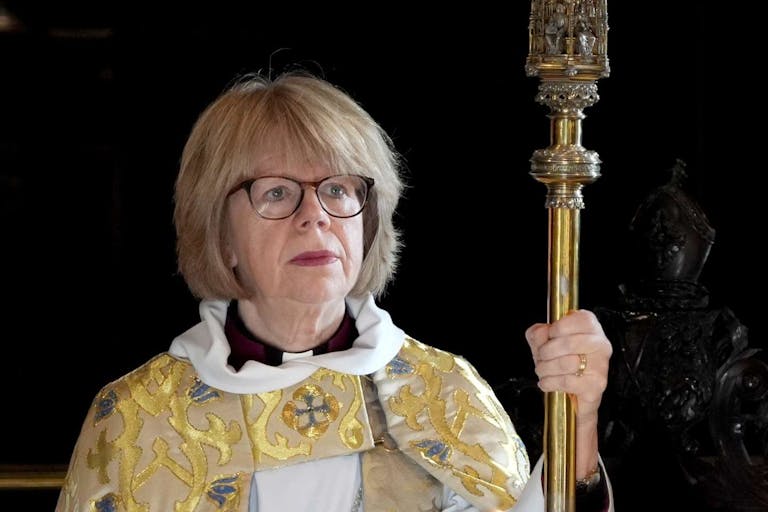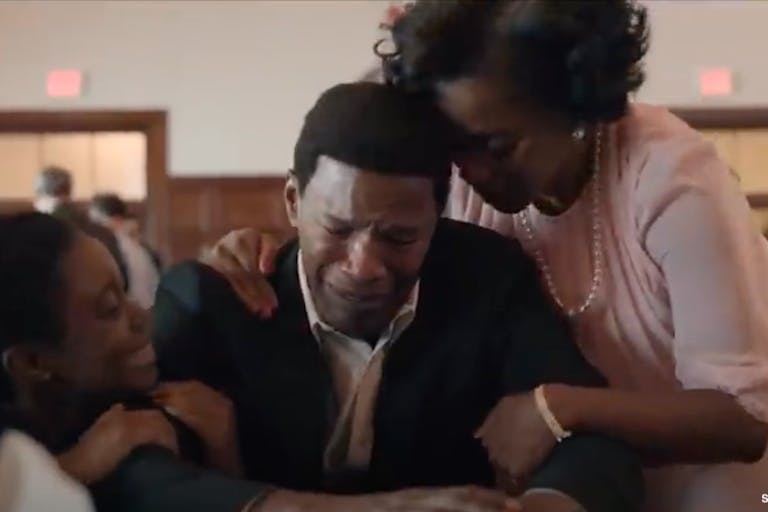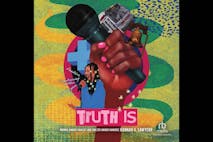
New Archbishop of Canterbury warns of danger in legalizing assisted suicide
Nancy Flanders
·
‘Just Mercy’ sends strong message that every human being has dignity and worth
Due to the current civil unrest in the United States, movies featuring the voices and experiences of the Black community are currently streaming for free across several platforms, adding to the national conversation and giving people a chance to learn other perspectives. One of those films is “Just Mercy,” the true story of Harvard-educated attorney Bryan Stevenson and his work to help wrongfully convicted inmates on Death Row. The film offers both a harrowing portrayal of racial injustice in the criminal justice system and a powerful pro-life perspective on how every human life has value, meaning, and worth.
Capital punishment is a controversial part of the American criminal justice system, with 28 states currently still allowing the death penalty. The issue unites people across political lines, with large numbers of pro-abortion liberals and pro-life conservatives agreeing that it should be abolished. “Just Mercy,” which stars Jamie Foxx, Michael B. Jordan, and Brie Larson, illustrates why it is opposed by many people.

Jordan portrays Bryan Stevenson, in an adaptation of Stevenson’s beststelling book of the same name. Stevenson, along with Larson’s character, Eva Ansley, founded the Equal Justice Initiative in Alabama, and “Just Mercy” tells the story of how their work began.
In the movie, Stevenson, newly graduated from Harvard, takes on multiple Death Row cases in Alabama. Included among them are Walter McMillian (known as Johnny D.), Anthony Ray Hinton, and Vietnam War veteran Herbert Richardson. The film portrays Richardson’s struggle with severe post-traumatic stress from his time in Vietnam. Richardson tried to kill himself numerous times. He was on Death Row for accidentally killing an 11-year-old girl when a pipe bomb he created blew up. Richardson had reportedly created the bomb to impress a woman he liked, and he intended to disarm the bomb.
READ: ‘Let’s get ready’: Life-affirming message shines through in Creed II film
The film shows that despite Stevenson’s attempts to secure a stay for Richardson, he was executed. The scene is arguably one of the most heart-wrenching and emotional moments in the movie.

“Just Mercy’s” treatment of Richardson serves as one of the pro-life themes in the film. Though clearly suffering from mental illness, Richardson’s psychiatric problems are ignored by the criminal justice system. He is nevertheless guilt-ridden over the life he has taken, yet multiple characters assure him that his life is still worthwhile. “Whatever you did, your life is still meaningful,” Stevenson reassures him. Fellow inmate McMillian says, the day before Richardson’s execution, that just because he killed someone “doesn’t give them [the criminal justice system] the right to kill you back.”
The crux of the film, however, focuses on McMillian’s case, while touching briefly on other Death Row inmates’ cases. Stevenson is ultimately able to secure McMillian’s freedom, and at the end of the film, it is revealed that Hinton was likewise released after spending 30 years on Death Row as a wrongfully convicted man.
At the film’s end, Michael B. Jordan (as Stevenson) addresses the United States Senate in a hearing regarding the death penalty. “Through this work, I’ve learned that each of us is more than the worst thing that we’ve ever done; that the opposite of poverty isn’t wealth, the opposite of poverty is justice; that the character of our nation isn’t reflected on how we treat the rich and the privileged, but how we treat the poor, the disfavored, and condemned,” he says.
Today, the Equal Justice Initiative works to free the wrongfully convicted, overturn death penalty sentences in exchange for life sentences, and rectify abusive and inhumane conditions in prisons. There are still huge racial disparities in prisons, including on death row, and EJI estimates that at least one in nine inmates on Death Row have been wrongfully convicted.
“Just Mercy” makes it clear that treating people—even Death Row inmates—as less than human is wrong. Every life—the poor, the disenfranchised, the mentally ill, the imprisoned, the preborn—has value, and should be treated with dignity.
“Like” Live Action News on Facebook for more pro-life news and commentary!
Live Action News is pro-life news and commentary from a pro-life perspective.
Contact editor@liveaction.org for questions, corrections, or if you are seeking permission to reprint any Live Action News content.
Guest Articles: To submit a guest article to Live Action News, email editor@liveaction.org with an attached Word document of 800-1000 words. Please also attach any photos relevant to your submission if applicable. If your submission is accepted for publication, you will be notified within three weeks. Guest articles are not compensated (see our Open License Agreement). Thank you for your interest in Live Action News!

Nancy Flanders
·
Human Interest
Bridget Sielicki
·
Media
Nancy Flanders
·
Media
Kelli Keane
·
Media
Cassy Cooke
·
Media
Cassy Cooke
·
Analysis
Cassy Cooke
·
Activism
Cassy Cooke
·
Pop Culture
Cassy Cooke
·
International
Cassy Cooke
·
Analysis
Cassy Cooke
·